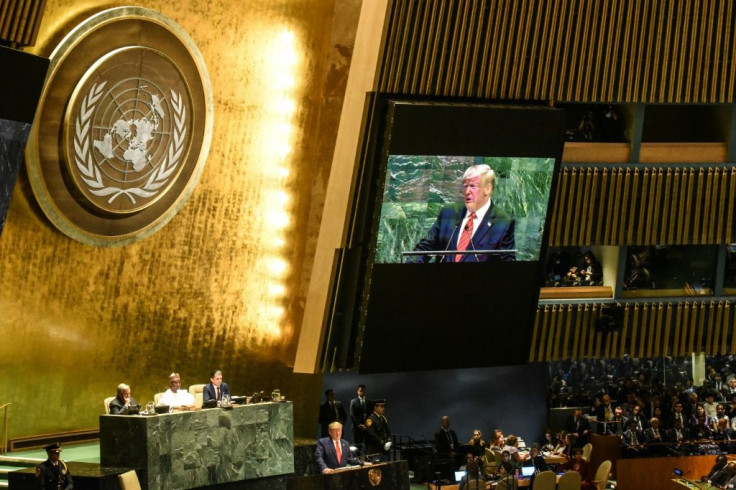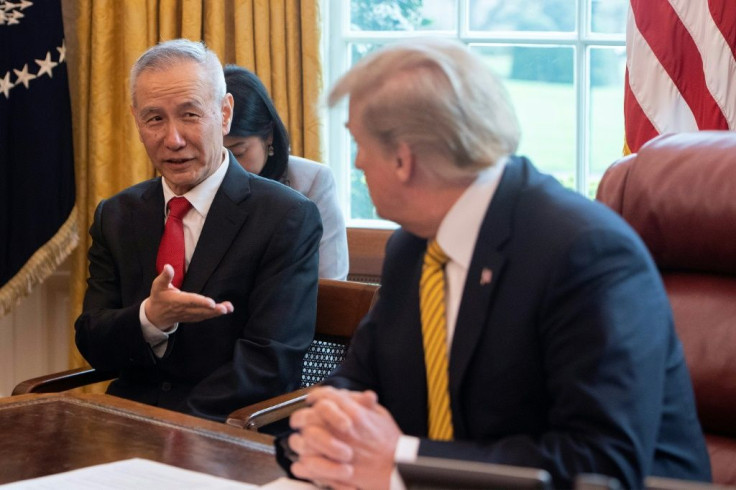US-China Trade War Talks Resume On Oct. 10, Trump Says Deal 'Could Happen'

The much-delayed resumption of trade talks between China and the United States, which was supposed to have begun after Oct. 15, has now been definitely set for Oct. 10 to 11 in Washington, D.C.
As was expected, Chinese Vice Premier Liu He will lead the Chinese delegation, according to sources cited by CNBC. Liu formerly carried the title, “special envoy,” and was empowered by Chinese president Xi Jinping to negotiate on his behalf.
Liu was later stripped of this title by hardliners in the Communist Party of China (CPC) who were aghast at some of the concessions he made to the U.S. in the spring. Despite this setback, Beijing has found no one to replace Liu as chief negotiator.
An economist, Liu was named vice-premier in March 2018 and heads the Financial Stability and Development Committee. His expertise is macroeconomics, industrial structure, new economic theory and information technology. Sources say Liu has been an innovator in his research in these fields since 1987.
Liu was Xi's classmate in middle school. Liu's childhood ties to Xi partly explain Xi's loyalty towards him. Liu has also been described as "one of the technocrats that Xi Jinping trusts a great deal."
On Wednesday, president Donald Trump claimed Chinese leaders "want to make a deal very badly. And it could happen ... It could happen sooner than you think."
The resumption of trade talks come at an unwelcome time for Trump, who will be in the midst of an impeachment investigation in October. Some analysts say a comprehensive deal -- or any deal, including a short-term deal Trump said he doesn't want -- might take some of the political heat off Trump.
This calculus, however, means China will have the edge in the upcoming trade talks as Trump may be desperate to make any deal, even one disadvantageous to the U.S.

Trade tensions between China and the U.S. escalated in August and led to a cooling-down in contacts. Negotiations were broken off on Aug. 23 when Trump retaliated against China’s new tariffs by raising taxes on $250 billion worth of Chinese goods to 30 percent from 25 percent. Trump also boosted tariffs on another $300 billion in Chinese products to 15 percent from 10 percent.
Levies on the $250 billion worth of goods are scheduled to take effect Oct. 15, while duties on the $300 billion are set to go into effect in two stages on Sept. 1 and Dec. 15. China has retaliated against these tariffs.
Trump’s new tariffs means all the items exempted from the previous 10 percent tariff Trump announced Aug. 10, which includes Apple iPhones, will be hit by the harsher and higher tariffs.
On Aug. 28, the Trump administration made official its additional 5 percent tariff on $300 billion in Chinese imports.
© Copyright IBTimes 2024. All rights reserved.





















